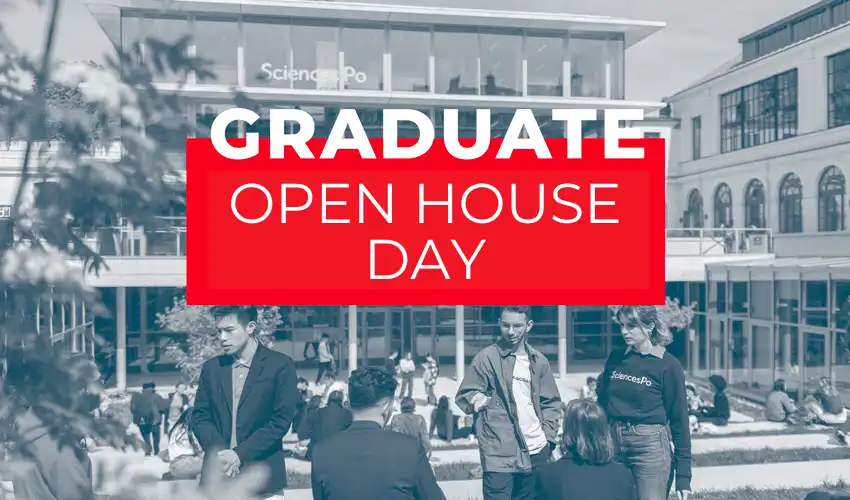Home>Maela GUILLAUME LE GALL, Class of 2024
27.06.2024
Maela GUILLAUME LE GALL, Class of 2024

CAN YOU TELL US ABOUT YOUR ACADEMIC BACKGROUND? HOW DID YOUR INTEREST IN POLITICAL SCIENCE COME ABOUT?
With the guidance of my economics and social sciences and history teachers at the Lycée Loth in Pontivy, I did a first year of a preparatory class in literature and social sciences in Vannes, before entering the Institut d'Études Politiques in Rennes. In my 3rd year at the IEP, I discovered the world of research with Min Reuchamps and my colleagues at the Centre de science politique et de politique comparée (CESPOL), during an internship in the UCLouvain laboratory in Belgium. That's what prompted me to apply for a master's degree specialising in this area, and more specifically in public policy. This major was of particular interest to me as I was looking to understand how public policy works, in order to understand how it can better act on multidimensional social inequalities. After a first year in this master's programme, followed by a gap year, I started my M2 at the School of Research and concurrently began an M1 at the École polytechnique and ENSAE, which focused more on the quantitative study of public policy.
WHAT DID YOUR YEARS OF STUDY AT THE SCHOOL OF RESEARCH GIVE YOU?
At the School of Research, I received a solid grounding in public policy in terms of both theory and methods, both qualitative and quantitative. The excellent introductory courses in quantitative methods given by Jan Rovny made me want to learn even more about the subject. Although the theoretical courses are fairly general, I appreciated the fact that the final reports could systematically be linked to our more specific research interests - in my case, educational and territorial inequalities. Over the first three semesters, this allows us to approach our subject from different angles before devoting ourselves fully to it during the research dissertation in the final semester. What's more, the small size of the class means that we can be monitored individually by the professors, both in our work and in our academic career. I also improved my command of academic English, thanks to the many lessons given in this language - which wasn't necessarily obvious at the outset, but which is essential if you want to work in the world of research today.
I also had the opportunity, during my Licence 3 and then my Master 1, to be a research assistant for Carlo Barone on the 123CP project, which enabled me to discover the different phases of an experimental research project.
WHICH TEACHER OR COURSE HAS HAD THE GREATEST IMPACT ON YOU?
Philippe Bezès, who, as well as being very involved in his students' progress, manages to make even bureaucracies fascinating! Also Marco Oberti, who supervised my dissertation on the socio-territorial characteristics of the 2023 riots, and with whom I had many intellectually stimulating discussions. It was a fascinating experience that helped me to diversify my research interests, and also offered me some great research opportunities.
WHERE ARE YOU HEADING TODAY?
Having just finished my course at the School of Research, I'm doing a second year of a Masters at the École Polytechnique and ENSAE in Data & Economics for Public Policy, to specialise more in quantitative methods. I'm currently doing an internship at the Laboratory for interdisciplinary evaluation of public policies (LIEPP), where I'm continuing to work with Marco Oberti on the urban riots of summer 2023. After that, I'd like to do a dissertation in sociology linking school and territorial issues, using mixed methods.
WHAT WERE THE MAIN STAGES IN THE DEVELOPMENT OF YOUR CAREER PLAN?
Apart from my third year at the IEP, which introduced me to the world of research, my gap year enabled me to put into practice the skills I'd newly acquired in quantitative methods during my Master's 1: a placement in the statistics department of the Ministry of Education and then at the Reunion Rectorate, where I learnt how to handle raw data. In addition, the involvement with associations and the various discoveries in the field made possible by this year taught me as much on a personal level as on an academic one. Discovering the range of research possibilities offered by both quantitative and qualitative tools really made me want to pursue this path.
